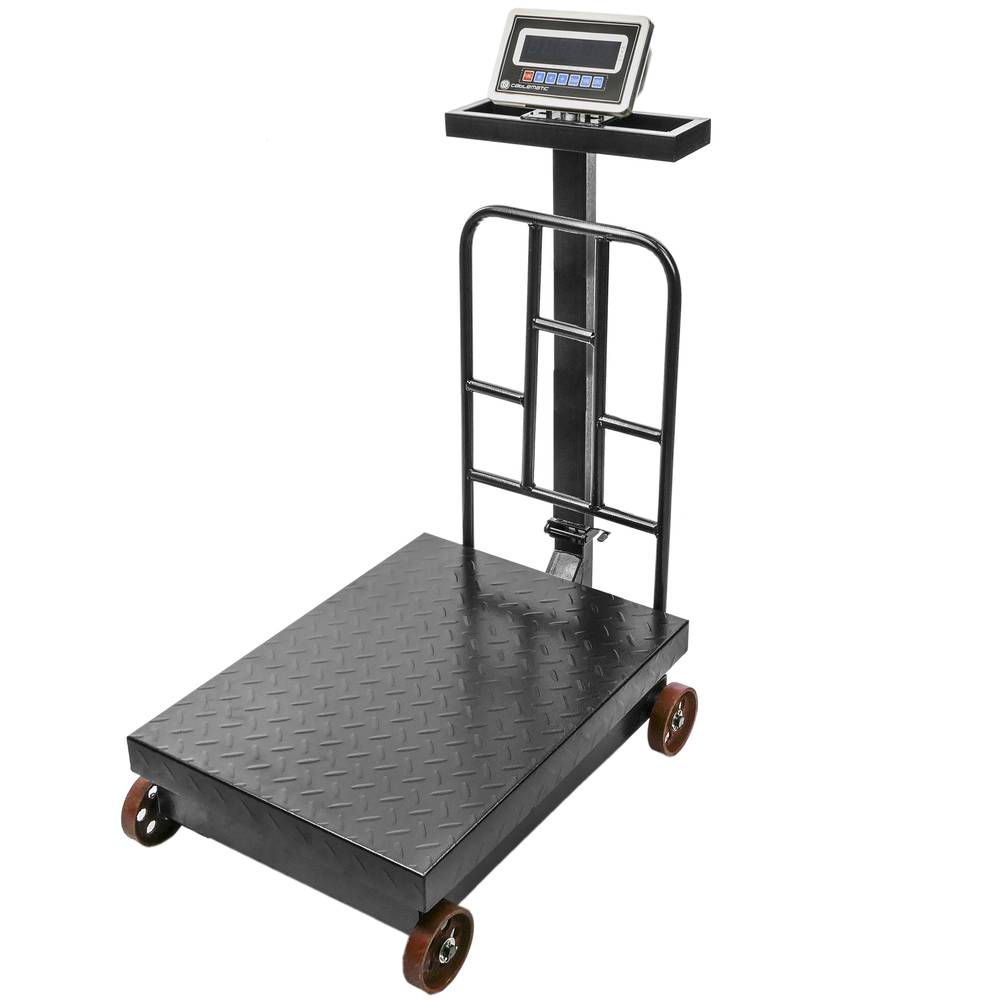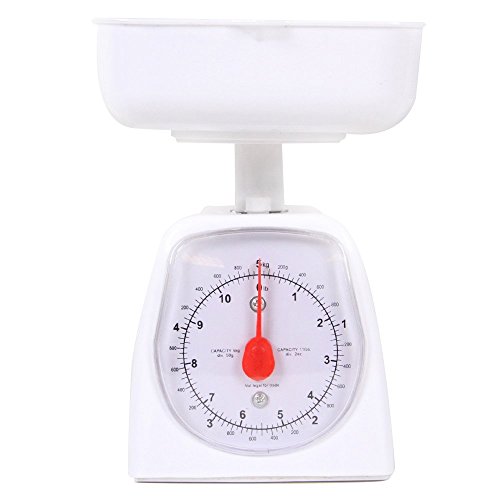Just How Commercial Scales Job: A Thorough Overview for New Users
Recognizing the auto mechanics behind industrial scales is vital for brand-new individuals who want to guarantee accuracy in their measurements. As we discover these elements, one should consider how these aspects interact to improve efficiency in diverse commercial applications.
Essentials of Industrial Scales
Industrial scales are important devices made use of across various fields, including production, logistics, and farming, to ensure exact weight measurements of hefty loads. The basic principle behind commercial scales entails the conversion of weight into a quantifiable type that can be displayed electronically or analogically. These scales utilize numerous systems, such as lots cells or mechanical levers, to determine the weight of items placed upon them.

In enhancement to their dimension abilities, commercial scales are created to stand up to rough settings, including robust building that withstands dust, moisture, and hefty influences. Calibration and upkeep are crucial to make sure precision, as even minor disparities can bring about substantial monetary ramifications. By understanding the basics of commercial ranges, individuals can appreciate their importance in numerous commercial applications.
Sorts Of Industrial Scales
Various kinds of commercial scales satisfy the varied needs of various markets, each created to take care of particular weighing jobs with precision and dependability. Amongst the most typical types are floor ranges, which are excellent for evaluating heavy and cumbersome products. These scales typically include big platforms and can suit palletized goods, making them essential in storehouses and shipping centers.
One more kind is bench ranges, which are commonly used for smaller things in manufacturing and retail settings. They give accurate dimensions for items that require precision, such as chemicals or parts in production line (Industrial Scales). For mobile procedures, portable ranges offer flexibility and convenience of transport, appropriate for fieldwork or short-lived installations
Furthermore, specialized ranges like checkweighers are made use of in manufacturing lines to keep top quality control by making certain that items fulfill weight requirements. Each kind of industrial scale plays a vital function in improving operational effectiveness and accuracy across various sectors.
How Considering Devices Job
Evaluating systems are necessary elements that allow accurate dimension of mass throughout different industrial ranges. These devices use various concepts of physics and design to supply exact weight readings, essential for supply monitoring, high quality control, and compliance with governing requirements.
One typical sort of considering system is the tons cell, which operates on the concept of stress evaluates. When a lots is used, the load cell flaws somewhat, generating an electric signal proportional to the weight. This signal is after that transformed right into an understandable weight measurement by the range's electronics.
An additional commonly used system is the mechanical balance, which uses a system of weights and bars. Industrial Scales. This method counts on the principle of stability, where the weight of the item being gauged is balanced versus known weights, enabling direct dimension
Additionally, hydraulic and pneumatic ranges leverage liquid dynamics concepts to measure weight. These systems utilize the stress exerted by a tons to determine weight, using high accuracy for large loads.
Appropriate Use Strategies
When using commercial scales, adhering to correct usage methods is go right here critical for making sure exact measurements and preserving equipment integrity. Firstly, it is vital to pick the appropriate scale for your certain application, as ranges differ in capacity and precision.
Prior to considering, make certain that the scale is placed on a stable, level surface devoid of disruptions or resonances. This will certainly aid to decrease errors brought on by external factors. Additionally, calibrate the scale according to the maker's specs prior to use, making certain that it is working properly.
When putting things on the range, distribute the weight uniformly to avoid tipping or harming the equipment. Always enable the scale to support prior to taping the weight, as changes may take place throughout preliminary placement. For bulk materials, use containers that are appropriate for the range dimension to stop overloading.
Moreover, prevent placing overly warm or cool things straight on the scale, as temperature level variants can impact accuracy. Maintain the evaluating platform free and tidy of debris to protect against contamination and make sure trustworthy results. By adhering to these methods, users can take full advantage of the performance and durability of their industrial ranges.
Maintenance and Calibration Tips
Making sure the longevity and precision of industrial scales calls for thorough maintenance and routine calibration. A preventive maintenance timetable is important; it needs to include regular inspections to determine wear and tear, especially on lots cells and other delicate parts. Frequently cleansing the scale's surface area and making certain the surrounding location is without debris will aid maintain its stability and performance.
Calibration is similarly essential and ought to be executed at regular periods or whenever the range experiences significant changes in temperature, moisture, or physical variation. Utilize certified calibration weights that are deducible to nationwide criteria for accuracy. File each calibration session thoroughly to track efficiency with time and identify any patterns or persisting concerns.
In addition, be mindful of the scale's environment. Avoid putting it near sources of vibration, electro-magnetic disturbance, or severe temperature levels, as these variables can adversely affect measurements. Finally, train all operators on appropriate scale usage and upkeep methods to make certain regular efficiency and precision. By sticking to these upkeep and calibration pointers, customers can see this website improve the dependability of their industrial scales, ensuring optimal procedure in any kind of setup.
Final Thought

Comprehending the technicians behind commercial ranges is critical for new users who want to make sure precision in their dimensions.Industrial ranges are important tools utilized across various sectors, including manufacturing, logistics, and farming, to ensure accurate weight measurements of hefty lots. The fundamental concept behind commercial scales includes the conversion of weight into a measurable form that can be presented electronically or analogically. By comprehending website link the fundamentals of industrial scales, customers can value their value in different industrial applications.
In conclusion, understanding the procedure and upkeep of industrial scales is crucial for ensuring exact weight dimensions in different applications. (Industrial Scales)
Comments on “Understanding the Different Types of Industrial Scales for Your Business”